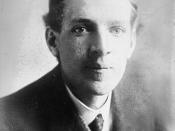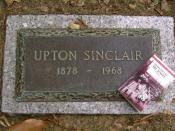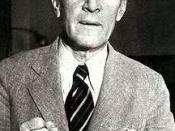Nine-teen hundred and six was a time defined and marked in our history by Progressive reform and pTheodore Roosevelt was in the Whitehouse and immigrants were in factories and the slums. Progressivism, "was a political response to industrialization and its social by-products . . . the progressives were reformers, not radicals. They wanted to remedy the social evils spawned by capitalism, not destroy the system itself."ÃÂ (Boyer, p. 625) It was on this notion of reform, and "ÃÂresponse to industrialization and its social by-products,' that Upton Sinclair's The Jungle took hold of the American sentiment and turned it inside out. Whether one wants to categorize Sinclair's Jungle as muckraking, propaganda, or both, the effect the Jungle had on social perspective must be acknowledged. Acting a vehicle for socialistic rhetoric, The Jungle, both in story, and in history was able to rally immigrant support and was and important catalyst in the passing of the first piece of regulatory food and drug legislature.
The Jungle, through the story of Lithuanian immigrants, reveals the plight of immigrants and exposes the degradation of the working condition in, and the treatment of workers, in the Chicago meat packing industry. Sinclair approaches the novel as a narrative, infusing it with his socialistic views. The characters do nothing on their own, all their thoughts, and sentiments are what Sinclair says they think. What becomes more evident as the reader ventures farther into the story is the fact that for Sinclair, the means of salvation is the adoption of the socialists spirit, and those who fail are the victims of capitalism.
As a piece of propaganda, The Jungle, successfully throws open the door on the plight of the immigrant worker. In the first couple of chapters, Sinclair gives a vivid description of the conditions...


